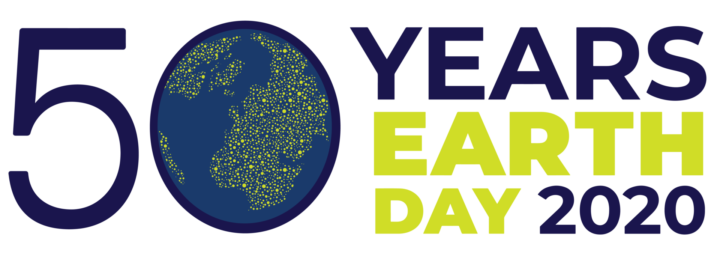On this Earth Day 2020, members of the Abolition 2000 coodinating committee and others have written a statement in support of the need to address the triple threats facing humanity today: climate change, global pandemics and nuclear devastation. The statement is open for signatories by anyone who would like to endorse it. It highlights the fact that although climate change is a huge threat to human civilization given that a tipping point could be reached at any time, and covid-19 is killing thousands of people every day, a nuclear war has the capability to destroy civilization in a matter of days.
Addressing the threats to Planetary Survival
Earth Day 2020 sign on statement from members of the Abolition 2000 global network to eliminate nuclear weapons
The year 2020 marks the 50th Anniversary of Earth Day[i] and finds the planet facing existential threats like never before in human history.
The threat from climate change is manifesting itself more and more strongly as the years go by through extreme weather events, forest fires on a vast scale, the bleaching of coral reefs, and receding glaciers, among others. This year also sees the world facing a pandemic which, as we speak, is costing thousands of lives every day and seems likely to have an impact on our civilization for years, if not decades to come.
Alongside these threats to human existence, however, is the lesser-considered, but more dangerous threat from nuclear disaster, and in this context we recall that the year 2020 also marks the 75th anniversary of the U.S. atomic bombs dropped on Hiroshima and Nagasaki, killing an estimated 500,000 people either through immediate incineration by the blast or subsequent death over the following months and years from agonising radiation poisoning[ii]. 2020 also marks the 75th anniversary of the establishment of the United Nations to “save succeeding generations from the scourge of war,” by putting in place the common security mechanisms to achieve this. Unfortunately, the end of the 2nd World War also kicked off a race for nations to develop nuclear technology that has the possibility to inflict a more devastating blow to the planet in 10 days than climate change will have in 100 years.
Today, some 14,000 nuclear weapons – most of which are vastly more powerful than the bombs that destroyed Hiroshima and Nagasaki – continue to pose an intolerable threat to humanity as identified by Atomic Scientists who judge the planet to be a symbolic 100 seconds to midnight on their doomsday clock[iii]. These weapons, thousands of which can be launched within minutes of the order being given, are in the hands of sometimes erratic leaders who cannot be trusted to put the wellbeing of the planet ahead of their own domestic agendas. Research published in 2013 by International Physicians for the Prevention of Nuclear War concludes that up to 2 billion people would be at risk of starvation in a nuclear conflict consisting of the use of only 100 nuclear warheads[iv], and evidence from the ICRC showed that there is no capacity to provide humanitarian assistance in the case of nuclear bombs used in populated areas[v], either.
In addition, the over 400 nuclear power stations distributed all over the planet are capable of poisoning the entire planet with toxic radioactive waste that needs to be stored safely for 250,000 years. Each one of these stations is an accident waiting to happen and a potential terrorist threat. Over the last 50 years in which Earth Day has been marked, we have seen dramatic accidents at reactors in Three Mile Island, Chernobyl and Fukushima. At the time of writing, forest fires around Chernobyl are cause for concern as they approach the reactor location, and the fires themselves are re-releasing into the atmosphere the radioactive material previously absorbed by trees and other plants since the reactor exploded[vi].
Colonised and indigenous peoples have, in the large part, borne the brunt of nuclear devastation – from the mining of uranium and the testing of nuclear weapons on indigenous peoples land, to the dumping, storage and transport of plutonium and nuclear wastes, and the theft of land for nuclear infrastructure.[vii]
On this Earth Day, as the world faces the triple threats of climate change, virus pandemic and nuclear oblivion, we call on all people of good faith around the world to come together and construct the foundations of a new world: a world without nuclear weapons and nuclear energy, a sustainable world in which the land, oceans, atmosphere, glaciers, wildernesses, flora and fauna in all its diversity can recover, and an equitable world with an economic system that provides a dignified life for all the planet’s inhabitants.
An essential part of this new world will be better implementation of the UN Charter prohibition on war and the utilisation of diplomacy and law to resolve international disputes. It will also require redirection of military spending towards human security, the elimination of nuclear weapons, the rapid phasing out of nuclear power, and a turn to clean, safe renewable energy sources.[viii][ix]
As a species, we have the capability of doing this, and the current global crisis is the wake-up call we need in order to make a better world for all.
We, the undersigned, are ready to do our part. Who is with us?
Click here to add your name to the list of signatories
Click here to view the full list of signatories
[i] https://www.earthday.org/earth-day-2020/
[ii] https://www.pressenza.com/2019/07/interview-with-kathleen-lawand-international-committee-of-the-red-cross/
[iii] https://thebulletin.org/2020/01/press-release-it-is-now-100-seconds-to-midnight/
[iv] https://www.ippnw.org/pdf/nuclear-famine-two-billion-at-risk-2013.pdf
[v] https://www.regjeringen.no/globalassets/upload/ud/vedlegg/hum/hum_malich.pdf
[vi] https://www.bbc.co.uk/news/world-europe-52274242
[vii] http://www.abolition2000.org/en/resources/newsreleasesstatements/moorea-declaration/
[viii] http://www.abolition2000.org/a2000-files/sustainable-now.pdf
[ix] https://www.irena.org/newsroom/pressreleases/2020/Apr/Renewable-energy-can-support-resilient-and-equitable-recovery










